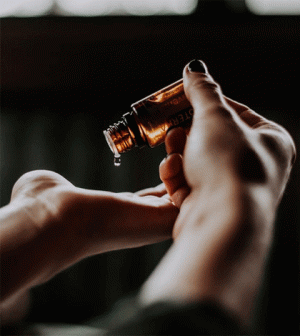- Finding Unshakable Power in a World That Wants to Pull Us ApartPosted 5 months ago
- What could a Donald Trump presidency mean for abortion rights?Posted 5 months ago
- Financial Empowerment: The Game-Changer for Women in Relationships and BeyondPosted 6 months ago
- Mental Health and Wellbeing Tips During and After PregnancyPosted 6 months ago
- Fall Renewal: Step outside your Comfort Zone & Experience Vibrant ChangePosted 6 months ago
- Women Entrepreneurs Need Support SystemsPosted 7 months ago
How to Prevent Skin Damage in a Natural Way

By Charolette Danzig
Non-surgical skin tightening costs $2,059 on average, while the average cost of intense pulsed light treatment (IPL) is $391, according to the American Society of Plastic surgeons. If you are like most women, caring for your skin is a primary concern. The skin acts as a barrier for protecting your body from harmful elements from the outside. It is, therefore, essential to promote skin health and maintain a radiant glow.
Fortunately, taking care of your skin isn’t as time-consuming and daunting as it seems. You only need to understand what your skin says about your health and choose the right steps to prevent skin damage. While laser, injectables, chemical peels, and light treatments are effective in rejuvenating the skin, they are costly and involve side effects. For these reasons, you might want to incorporate these natural remedies into your skincare routine.
Avoid Excessive Sun Exposure
Sunbathing sounds like a healthy option for getting a body tan. However, too much exposure outside in the sun increases the risk of skin cancer. The ultraviolet rays emitted by the sun are also responsible for causing uneven skin color, premature wrinkling, sunburns, and age spots. Dermatologists recommend avoiding the sun from 10 a.m. to 4 p.m. when UV rays cause a lot of skin damage.
If you must get out, there are ways you can limit sun exposure and keep your skin healthy. Consider applying sunscreen, preferably one with an SPF (sun protector factor) of 30 or more. A general rule is to use healthy sunscreen every day on your face and other areas exposed to the sun. When choosing a sunscreen, read the label to ensure it contains organic ingredients like zinc oxide, titanium dioxide, sunflower oil, shea butter, jojoba oil, beeswax, aloe vera, and coconut oil. Also, use organic lip balm, sit under an umbrella, and always wear lightweight and tightly woven garments, hats, and sunglasses to protect your skin from ultraviolet rays.
Stay Hydrated
We all know staying hydrated is vital for enhanced general health. But most individuals are clueless about how drinking water helps the skin. A lack of enough water causes dehydration, which reflects quickly on your skin. When you are dehydrated the skin dries, becomes tight, flaky, and sensitive. Additionally, severe skin inflammation, psoriasis, and eczema are signs of excessive water loss, and fluid intake should be a top priority.
Drinking enough water keeps your skin hydrated, restoring a healthy, smooth, and youthful appearance. Hydrated skin looks plumper, has increased elasticity, and less wrinkled. Apart from drinking water, make sure to bath with lukewarm water and soaps free of harmful chemicals. This simple act washes away dirt and grime from your skin, leaving it smooth, glowing, and moisturized.
Apply Natural Repair Skin Moisturizers
If your skin is dry and inflamed despite increasing your fluid intake, then consider using skin moisturizers. While many brands offer skin repair treatments, choosing one that focuses on natural ingredients like First Aid Beauty is advisable. You are probably thinking, what makes a product ideal for skin repair? As long as the product has an ultra-hydrating formula that’s designed to treat dry and distressed skin, you’ll be off to a great start. Whether you have dry, sensitive, oily, or mixed skin type, moisturizers prove to be an effective remedy for mild irritation caused by eczema.
Interestingly, you can even apply ultra-hydrating cream on baby skin because it typically features natural ingredients that are safe for any age. Shea butter and colloidal oatmeal are some of the organic ingredients used and are known to reduce skin irritation and itching. For appealing results, experts recommend applying ultra repair cream twice every day. You may want to utilize other products like face hydrating repair cleansers and serum, which have soothing properties and ability to repair skin irritation and mild burns.
Consider Lifestyle Changes
Your daily habits can take a toll on your skin. For instance, smoking cigarettes releases toxins that damage elasticity and collagen. As a result, your skin becomes saggy, shows signs of premature aging, and has discoloration. Smoking also blocks the body from absorbing Vitamin C, which is vital for preventing damage.
You can combat the effects of smoking by consuming fruits rich in Vitamin C and food rich in Zinc and Omega 3. Aside from smoking, avoid excessive consumption of alcohol and caffeinated drinks like coffee. However, if you can’t avoid coffee, ensure you are drinking enough water to prevent dehydration. Other lifestyle changes that improve your skin health include, avoiding stress, eating a healthy diet, reducing sugar intake, exercise, and getting enough sleep.
Maintaining healthy skin is possible if you take precaution to limit exposure to ultraviolet rays. Improving your lifestyle is also fundamental in restoring a youthful glow. But most importantly, create a healthy skincare routine, you can follow each day to monitor your skin health. A good skincare routine involves cleansing, toning, and moisturizing using organic beauty products.
********
Charly Danzig is a professional writer with a passion for the health and wellness sector. She used to work in health PR but is now committed to her writing, regularly contributing to many magazines and websites.
Feature Slider Image by: Christin Hume






